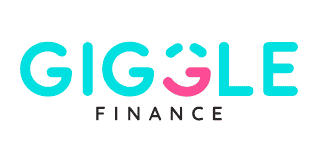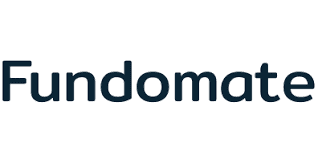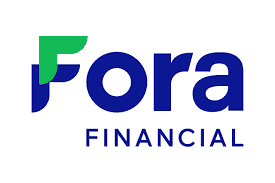| Lender | NerdWallet rating | Best For | Max loan amount | Min. time in business | Min. interest rate | Term length | Learn more |
|---|---|---|---|---|---|---|---|
| with Fundera by NerdWallet | Read expert review | same-day approvals | $500,000 | 12 months | Undisclosed | 3 to 18 months | with Fundera by NerdWallet |
| with Fundera by NerdWallet | Read expert review | bad credit | $500,000 | 6 months | Undisclosed | 6 to 18 months | with Fundera by NerdWallet |
| with Fundera by NerdWallet | Read expert review | self-employed individuals | $10,000 | 3 months | Undisclosed | Up to 6 months | with Fundera by NerdWallet |
| with Fundera by NerdWallet | flexible repayment | $500,000 | 12 months | 18% | Up to 18 months | with Fundera by NerdWallet | |
| with Fundera by NerdWallet | Read expert review | strong revenue | $1,500,000 | 6 months | Undisclosed | Up to 18 months | with Fundera by NerdWallet |
| with Fundera by NerdWallet | Read expert review | low fees | $500,000 | 3 years | Undisclosed | 3 to 18 months | with Fundera by NerdWallet |
| with Fundera by NerdWallet | startups | $300,000 | 6 months | Undisclosed | Undisclosed | with Fundera by NerdWallet |
best merchant cash advance companies: More details
Forward Financing : Best for same-day approvals
Forward Financing provides funding to borrowers with a minimum credit score of 500. If approved, you may be able to receive funds the same day that you sign your agreement. Borrowers may also be able to quickly tap into additional funds after paying back at least half of their current cash advance.
Forward Financing - Merchant cash advance
with Fundera by NerdWallet
Pros
- Can be approved for financing within the same business day.
- Simple application process with minimum documentation.
- Can be used to build business credit.
- No prepayment penalties.
Cons
- Daily or weekly payments required.
- Charges an origination fee.
Pros
- Can be approved for financing within the same business day.
- Simple application process with minimum documentation.
- Can be used to build business credit.
- No prepayment penalties.
Cons
- Daily or weekly payments required.
- Charges an origination fee.
with Fundera by NerdWallet
Uplyft Capital: Best for bad credit
Uplyft Capital stands out for its flexible qualification requirements. You may qualify for an advance with a credit score as low as 475 — the lowest minimum among MCA companies on this list. Businesses with at least six months in operation may also qualify. The company offers three tiers of funding, but you may have to pay a $695 funding fee, plus an origination fee.
Uplyft Capital- Merchant cash advance
with Fundera by NerdWallet
Pros
- Funding in as little as 24 to 48 hours.
- Low minimum credit score requirement.
- Startups may qualify.
- No personal guarantee required.
Cons
- MCAs charge factor rates which makes it difficult to understand the true cost of financing.
- Only directly funds MCAs.
- Cost information not available on website.
Pros
- Funding in as little as 24 to 48 hours.
- Low minimum credit score requirement.
- Startups may qualify.
- No personal guarantee required.
Cons
- MCAs charge factor rates which makes it difficult to understand the true cost of financing.
- Only directly funds MCAs.
- Cost information not available on website.
with Fundera by NerdWallet
Giggle Finance: Best for self-employed individuals
Giggle Finance offers fast funding designed specifically for freelancers, contractors, online sellers and other self-employed individuals. There is no minimum credit score requirement to qualify. Solopreneurs can also qualify with just three months in business. Just watch out for high origination fees.
Giggle Finance - Merchant cash advance
with Fundera by NerdWallet
Pros
- No minimum credit score requirement.
- Same-day funding available.
- Specifically designed for freelancers and self-employed individuals.
Cons
- Funding maxes out at $10,000 ($20,000 for repeat customers).
- Factor rate and fee information not available on website.
- Charges an origination fee.
Pros
- No minimum credit score requirement.
- Same-day funding available.
- Specifically designed for freelancers and self-employed individuals.
Cons
- Funding maxes out at $10,000 ($20,000 for repeat customers).
- Factor rate and fee information not available on website.
- Charges an origination fee.
with Fundera by NerdWallet
Fundomate: Best for flexible repayment
Fundomate offers a daily, weekly or biweekly repayment schedule. You can get your advance as quickly as 24 hours after approval, which you’ll have to pay back within 18 months. And if you can repay your advance ahead of schedule, you may get a prepayment discount.
Fundomate- Business funding
with Fundera by NerdWallet
Pros
- Cash can be available in as little as 24 hours.
- Can get a discount for prepaying your loan.
Cons
- Rates can be high compared with traditional banks.
- May have to pay an origination fee.
Pros
- Cash can be available in as little as 24 hours.
- Can get a discount for prepaying your loan.
Cons
- Rates can be high compared with traditional banks.
- May have to pay an origination fee.
with Fundera by NerdWallet
Fora Financial: Best for strong revenue
Fora Financial offers advances as high as $1.5 million. To qualify with Fora, you need a minimum credit score of 570, six months in business and $20,000 in monthly revenue. After paying back at least 60% of your initial advance, you may be able to borrow again. Fora’s MCA also comes with early repayment discounts and factor rates as low as 1.13.
Fora Financial - Revenue advance
with Fundera by NerdWallet
Pros
- Large advance amounts available.
- No physical collateral required.
- Prepayment discounts available.
Cons
- Charges one-time processing fee.
- UCC lien may be required.
Pros
- Large advance amounts available.
- No physical collateral required.
- Prepayment discounts available.
Cons
- Charges one-time processing fee.
- UCC lien may be required.
with Fundera by NerdWallet
Rapid Finance: Best for low fees
Rapid Finance does not charge an origination fee, maintenance fees or prepayment penalties, which can help bring down the overall cost of financing. Factor rates can be as low as 1.12, but you’ll need to have at least three years in business to qualify, and customer service may be spotty.
Rapid Finance - Merchant cash advance
with Fundera by NerdWallet
Pros
- No prepayment penalties or other fees.
- Can be approved with a credit score as low as 600.
Cons
- Daily or weekly payments.
- Lengthy time in business requirement.
Pros
- No prepayment penalties or other fees.
- Can be approved with a credit score as low as 600.
Cons
- Daily or weekly payments.
- Lengthy time in business requirement.
with Fundera by NerdWallet
Expansion Capital Group: Best for startups
You may be able to qualify for an MCA from Expansion Capital with a minimum of $8,333 in monthly revenue, a credit score of 500 and six months in business, making it a good choice for startup businesses with limited revenue.
Expansion Capital Group - Merchant cash advance
with Fundera by NerdWallet
Pros
- Simple application with minimal documentation required.
- Low minimum credit score requirement.
- Daily or weekly repayment available.
- Offers prepayment discounts.
Cons
- Business assets required as collateral in some cases.
- Factor rate and fee information not available on website.
- Charges an origination fee and a monthly servicing fee.
Pros
- Simple application with minimal documentation required.
- Low minimum credit score requirement.
- Daily or weekly repayment available.
- Offers prepayment discounts.
Cons
- Business assets required as collateral in some cases.
- Factor rate and fee information not available on website.
- Charges an origination fee and a monthly servicing fee.
with Fundera by NerdWallet
How to choose a merchant cash advance company
Watch for predatory practices
What is a merchant cash advance?
How does a merchant cash advance work?
- Automatic repayments. Borrowers are typically set up for automatic repayments through a percentage of their debit and credit card sales or withdrawals from their business bank account. These payments are typically made daily or weekly.
- Factor rates. MCA companies charge a factor rate instead of an interest rate. For example, an advance of $50,000 with a factor rate of 1.2 would require a total repayment of $60,000 ($50,000 x 1.2 = $60,000).
- Additional fees. In addition to a factor rate, you may also pay charges such as underwriting, administration, setup or service fees. And some MCA companies offer prepayment discounts if you repay the advance early.
- Term lengths. Term lengths vary by lender, but generally run from three to 24 months. In some cases, the MCA company may advance you additional funds if you’ve paid off a portion of the original advance.
How to improve your chances of getting traditional financing
Alternatives to merchant cash advance companies
How Fundera by NerdWallet works
Fill out one simple application
Answer a 3-minute questionnaire about your business to get personalized lending options. It’s free and won’t impact your credit score.
See your business loan options
Compare interest rates and repayment terms to choose the best product for your needs.
Get your loan
If the lender approves you, you’ll sign closing documents in order to receive funds. Some lenders can approve and fund loans within one business day.









